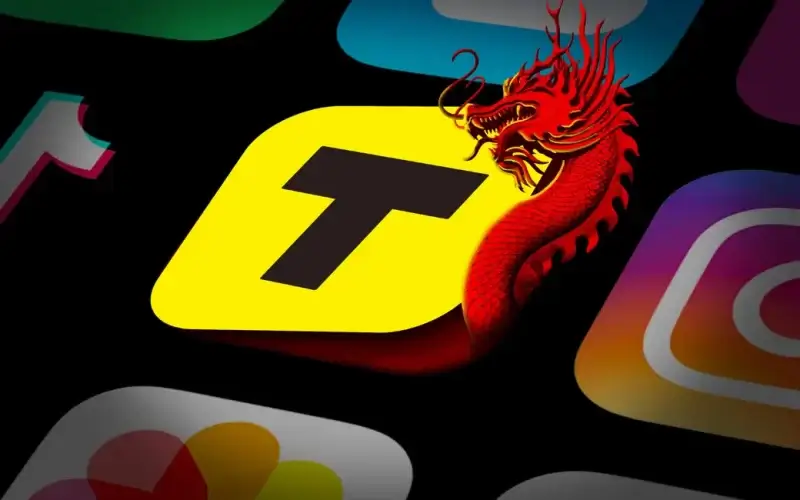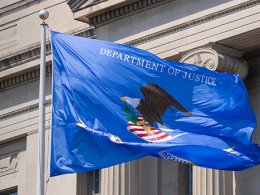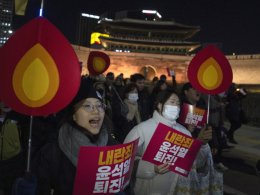For years, lawmakers and commentators have feared that the Chinese government could use TikTok — which is owned by a Chinese parent company, ByteDance — to secretly distribute content sympathetic to the Chinese Communist Party in order to shift public opinion in the United States.
According to new claims by four former employees of the company, ByteDance already has used one of its apps to push pro-China messages to Americans: its now-defunct English-language news app, TopBuzz. ByteDance forcefully denies the claims.
The four former ByteDance employees, each of whom worked on TopBuzz, claimed that ByteDance instructed members of its staff to place specific pieces of pro-China messaging in the app. According to three of the former employees, TopBuzz staff sometimes promoted content by “pinning” it to the top of the app. One former employee remembered staff posting panda videos in the app, along with videos promoting travel to China. Another remembered a staff member pinning a video in which a white man talked about the benefits of moving his startup to China.
According to all four former employees, staff were required to provide evidence to ByteDance that the content had in fact been placed in the app as directed. Three of the former employees said staff were required to take screenshots of the live content in TopBuzz and send them back to the company.
One source characterized most of the pro-China messages as “soft” rather than overt political statements. But, the person said, “Let’s be real, this was not something you could say no to. If they don’t do it, somebody’s going to jail.”
The sources spoke to BuzzFeed News on the condition of anonymity for fear of retribution. Many of the details provided by these sources were independently corroborated by other sources and by screenshots viewed by BuzzFeed News.
This is the first report alleging that TikTok’s parent company at one point intentionally used one of its apps to distribute pro-China messages to Americans.
In response to a request for comment, ByteDance spokesperson Billy Kenny said in an email: “The claim that TopBuzz — which was discontinued years ago — pinned pro-Chinese government content to the top of the app or worked to promote it is false and ridiculous. TopBuzz had over two dozen top tier US and UK media publishing partners, including BuzzFeed, which clearly did not find anything of concern when performing due diligence.” In response, a spokesperson for BuzzFeed Inc. said, “BuzzFeed, Inc. reaches its audience on all the major platforms — including those owned by ByteDance — while continuing to report on those platforms with rigorous journalism.”
TopBuzz, the app where the content was allegedly published, was the international version of ByteDance’s “insanely popular” Chinese news aggregator app Toutiao. In addition to promotional materials still available on YouTube, screenshots of the app from 2018 portray it as similar to Apple News or Google News, except that it allowed users to create articles alongside mainstream news outlets and use comment sections to discuss them. Launched in 2015, it amassed 40 million monthly active users by 2018 and was hailed as a major driver of traffic to US news publishers. But it was shuttered in June 2020, eight months after Reuters reported that the Committee on Foreign Investment in the United States was investigating ByteDance’s purchase of Musical.ly, the app that would later become TikTok, as a potential national security risk. (Disclosure: In a previous life, I held policy positions at Facebook and Spotify.)
“We always knew in the back of our heads that this wasn’t going to last, because of the whiff of a Chinese company involving itself in US politics,” one former employee said about TopBuzz continuing to operate in the US. Being in the news business, the person said, “was more a liability than an asset to them.”
In September 2020, over fears that it could be used by the Chinese government to spy on US citizens, then-president Donald Trump threatened to ban TikTok if it was not sold to an American company. But the ban — and the sale — never materialized. Instead, TikTok engaged with CFIUS and US-based data host Oracle on the effort called Project Texas, which is intended to firewall off some data about US TikTok users from ByteDance leadership in Beijing. Last month, BuzzFeed News reported — and then in a response to a letter from nine US senators, TikTok confirmed — that the company has allowed and will continue to allow some ByteDance employees in China to access US user data.
But the allegation that ByteDance actively inserted pro-China messages into one of its apps raises another regulatory concern about TikTok: that ByteDance could use TikTok in a similar way to influence public discussion in the United States (or elsewhere) in order to benefit China’s authoritarian government.
Adam Segal, director of the Digital and Cyberspace Policy Program at the Council on Foreign Relations, told BuzzFeed News that the allegations “certainly speak to the concerns that a Chinese app that is providing information could be misused for Chinese propaganda.”
Still, he said he wasn’t entirely surprised: “This is how the company was used to operating in the Chinese market, and so they were just going to do the same thing in foreign markets.”
The operations of TopBuzz provide a rare window into how ByteDance previously balanced its relationship with the Chinese government and its desire to dominate the international market for news and entertainment. Interviews with 15 former ByteDance employees who worked on TopBuzz also suggest efforts to censor content critical of the Chinese government, an operation to scrape and republish content from news publishers without permission, and an emphasis on featuring sensationalist, often inaccurate news to drive engagement.
Ten of the former employees claimed that a content review system would flag reporting on the Chinese government alongside nudity, hate speech, and other content for removal from the app. For instance, five former employees allege that coverage of the Hong Kong protests was subject to removal from TopBuzz. Two claimed content was sometimes removed for depicting openly LGBTQ people, although a third said that such content was sometimes allowed when US team members lobbied for its inclusion. (According to three of the sources, staff were encouraged to confer with the Beijing team about content moderation on “edge cases,” some of which just mentioned the Chinese government in passing.) Five allege that the company removed any articles that mentioned President Xi Jinping, and three remembered removing content that referenced Winnie the Pooh, because of a ban in China on memes comparing the character to Xi. (The Chinese Government has a history of censoring content related to Winnie the Pooh.) ByteDance did not respond to questions from BuzzFeed News about alleged censorship in TopBuzz.
While TopBuzz never discussed these policies publicly, at least one former ByteDance employee who worked on TopBuzz alluded to them on LinkedIn, saying she was “responsible for managing the content inside the platform according to Chinese government policies.” The former employee declined to speak with BuzzFeed News.
In March 2020, the Intercept reported that TikTok moderators were also ordered to censor videos that harmed China’s “national honor” or discussed “state organs such as police.” At the time, TikTok spokesperson Josh Gartner told the Intercept that “most of” the content moderation guidelines they reported on had either been discontinued or never implemented. Gartner declined to clarify whether the company still had a rule against “harming national honor” or videos about police. ByteDance did not respond to a follow-up question from BuzzFeed News about whether such a rule was ever in place or remains in place today.









